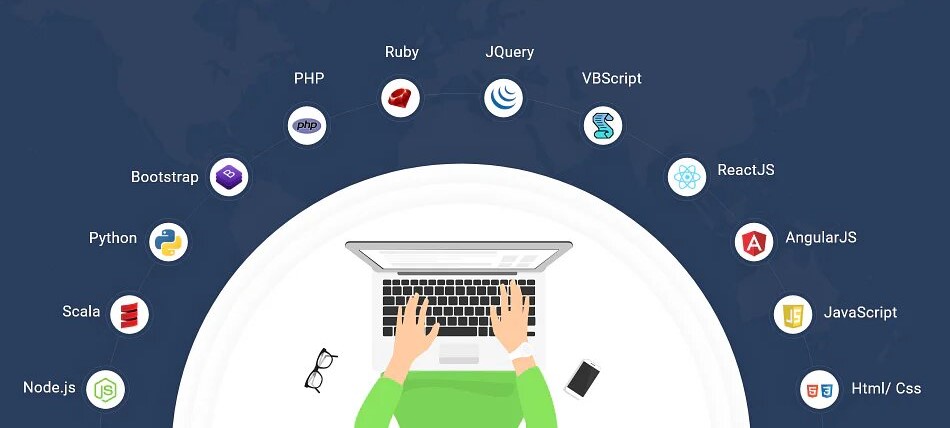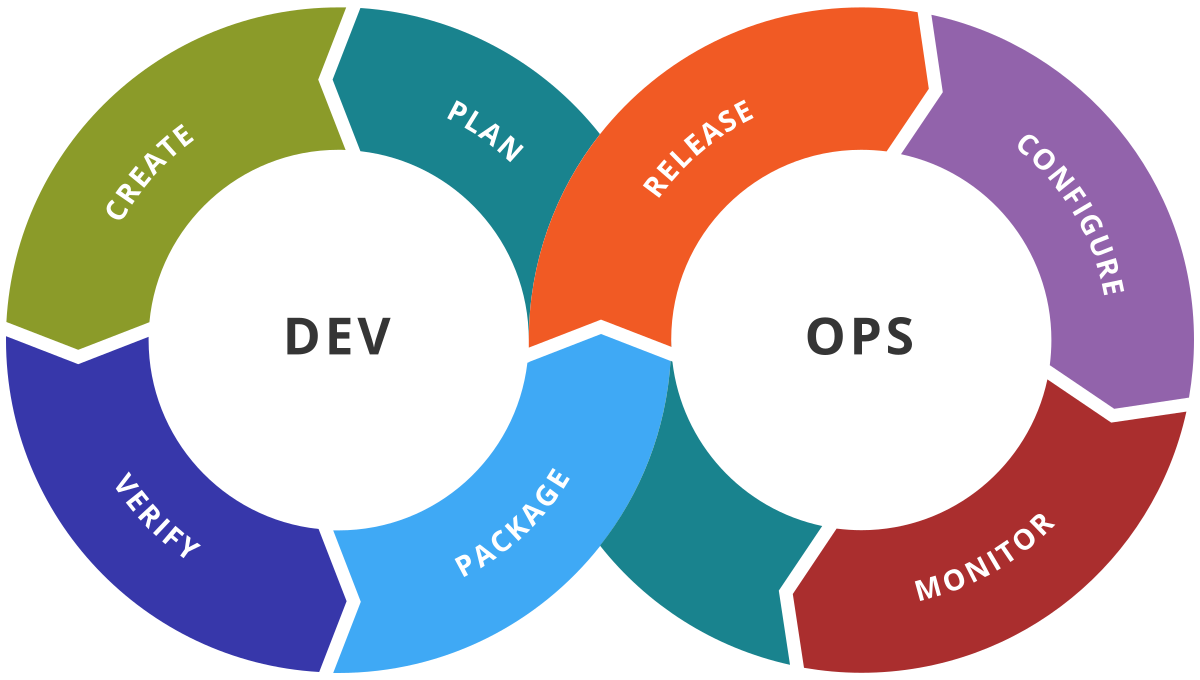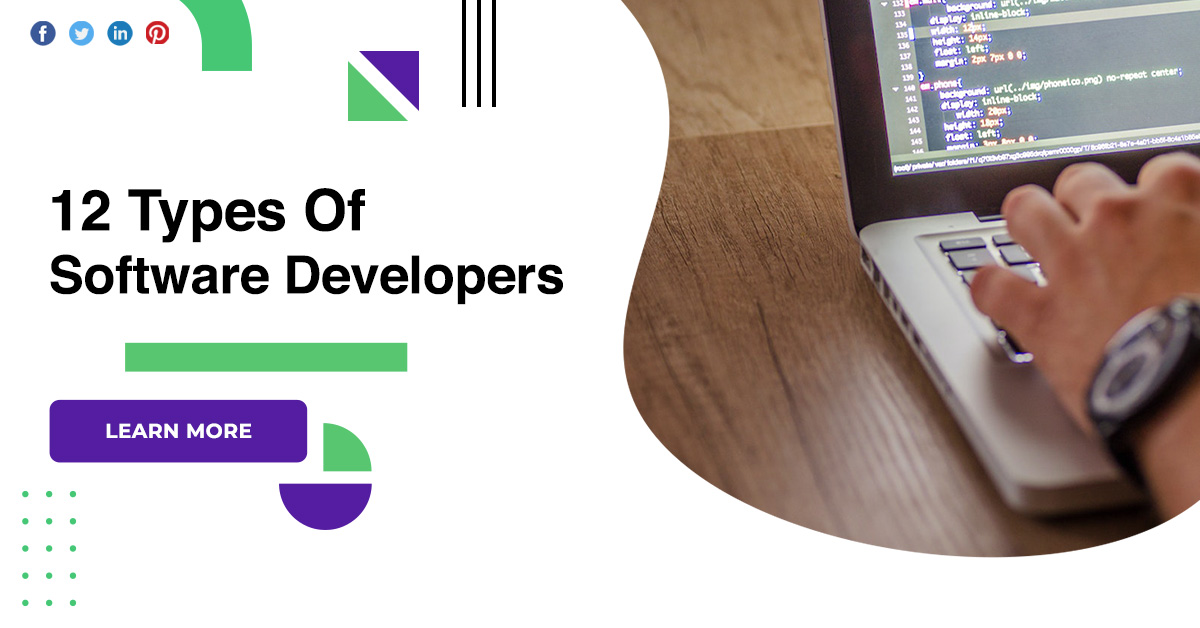12 Types Of Software Developers
The field of software development is constantly changing. Every few months, new areas of expertise, technology, and methodology emerge, created by the constant innovation of the software industry.
Software developers
Front-end development
Front-end development is the part of software development that is most accessible to users. This means that this type of software development is immediately visible to users as it consists of the graphical elements of any system, application, or website. User interfaces are a key part of making software appealing to end users.

Full stack development
At the end of the day, it is the user going through the front end who determines how the software application will work. The back end and front-end development essentially work together to provide the best of both worlds. In this sense, full-stack defines a combination of client-side and server-side development. Most types of software development must approach their project keeping in mind that the goal is full-stack development.

Data science
Data science is a field of study on the border between programming and data analysis. Data scientists typically do not write software that is released to the market. Although data may not seem like the most appealing subject, data science has many useful applications.

Mobile development
If you haven’t figured it out yet, mobile app development specifies creating apps that run on mobile devices such as smartphones or tablets.
Self-taught developer
A self-taught developer, he learned to develop himself by doing. They often come from different backgrounds such as support and transfer to development. They don’t know software development best practices, design patterns, SOLID principles, or other development concepts like unit testing unless they must use them.
Remove and insert the developer
Copy and paste developers have fragile knowledge, and solutions work, but any changes to the solution will break. Copy and paste developer is quick and efficient until it isn’t. When he encounters a problem, it hits hard because the shortcut to getting the solution bypassed any learning.
Database developer
They determine the best database management system for a particular client, test the efficiency and performance of the database program, and troubleshoot and fix problems.
Cloud developers
Cloud engineers are responsible for managing an organization’s cloud systems and processes. Specific tasks include setting up the architecture using AWS, Microsoft Azure, Google Cloud, or other cloud providers and managing the security and access of cloud systems.
DevOps developer
DevOps developers know the technologies and tools for building, deploying, and integrating systems and managing backend software. To simplify the definition, backend developers are those who build applications, while DevOps can build applications as well as deploy and monitor them.

Video game development
The process of developing video game software can involve one person or several hundred people around the world. Similarly, video games can take months to several years to produce, depending on the complexity of the game. Video games are interactive software for computers, consoles, and more recently mobile devices where visual feedback is essential to the user experience.
Security software development
Security specialists develop software to keep private information safe. A large part of security software development is testing the security of a software system. Through this methodology, penetration testers glorified hackers who have a professional duty to attempt to break a system’s security protocols can identify vulnerabilities.
Embedded systems development
For digital cameras to extend dedicated functions such as photo storage, developers must build an embedded system into the device.
Conclusion
Knowing these 12 types of software developers can bridge the gap between growing your business and understanding software development in general. Before starting any business, it is important to do your research and learn about business practices before proceeding.









